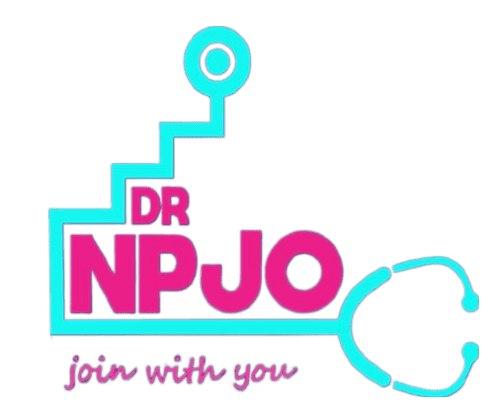The nurse practitioner job series continues. In this post, we will provide some questions you should ask at your nurse practitioner job interview. In addition to preparing for the specific interview questions you may be asked, it is important to come ready with yours to ask the interviewer. Remeber that an interview is not only an opportunity for the interviewer to assess your skills and qualifications, but it’s also a chance for you to learn more about the organization and the position and show the interview team that you are interested in their organization.
In addition to preparing for the specific interview questions you may be asked, it is important to come ready with yours to ask the interviewer. Remeber that an interview is not only an opportunity for the interviewer to assess your skills and qualifications, but it’s also a chance for you to learn more about the organization and the position and show the interview team that you are interested in their organization.
A few pointers
- Be attentive to your body language and demeanor. Because each could easily speak louder than the words you utter and tend to be more dangerous as it could be interpreted as something unfavorable to you.
- Be attentive to their questions and their response to your replies. You should capitalize on those aspects that resonated with them, take note of that, and incorporate it into your “thank you” letter.
- Endeavor to note the names of everyone present at your interview. You will need this information when sending your “thank you” letter.
- When deciding what questions to ask, endeavor to ask questions that allow the interviewer to speak in depth. This means limiting questions that produce “Yes” or “No” responses.
- It is important to insert yourself into the questions you ask to help create a presence. For example, instead of saying, “how do you measure success in this position?” say this: How will you measure my success in this position?” “How long will my mentorship last?” “Who will be responsible for my mentorship?” etc.
Inserting yourself into as many questions as possible may help the hiring manager to start replying with you in mind and unconsciously associate you with that position. As such, increasing your chances of getting the job. - Focus on asking about the position, how you will be a good fit, and how you can grow and benefit the organization. That means no compensation discussions yet.
- Do not be the first to bring up pay and benefits. However, if the interviewer or hiring manager brings it up during your initial interview, feel free to bring up your questions.
- One of the best times to bring up pay, benefits, and bonuses is when you have been informed that the position has been offered. At this stage, you know that the organization wants you. Always clarify their version of part-time and full-time, what PTO constitutes, sick time, tuition reimbursement, and when you can harness each.
- Before you proceed, please review the meaning of orientation vs. mentorship.
- Note that some of your questions may inspire the hiring team to ask you additional questions. Your answers should highlight how your questions for them will guide you in deciding to make a career of your position. In other words, you are looking to stay for the long term and grow, and not just fill a position at their organization. (come prepared with this response if you seriously plan to ask them questions).
- Always, always send a thank you note the same day or, at most, within 24 hours of your job interview.
- As pointed out earlier, you should note the names of everyone present at your interview. You will need this information when sending your “thank you” letter as you will be able to make it as personal as possible. Here is an example of how to incorporate that information into your thank you letter: “I want to extend my gratitude for the opportunity to be interviewed for position X. I appreciate the questions which (persons name & title) presented, and I hope my response highlighted how much an asset I will be to the organization.
- Some questions below may not pertain to you, the position, or the organization.
Questions to ask at your nurse practitioner job interview
Note that the questions are presented in a general format, it is your responsibility to reframe and modify it to fit you and your situation based on all that you have learned so far.
- Is this your first time hiring a nurse practitioner for this position?
This should highlight if the organization has experience working with a nurse practitioner and an understanding of the nurse practitioner’s scope of practice.
a). If this would be the organization’s first time hiring an NP, your follow-up questions should be targeted at understanding the rationale for the organization’s decision to start now hiring NPs.
b). Inquire what mentorship, role assignment, and team collaboration would look like for you in this position.
c). Remember the sixth sense we possess as nurses and NPs? Yes, bring it to your interview, and stay attentive. d). However, if this is not the first time the organization has hired an NP for that position, you should ask why the current nurse practitioner is leaving.
d). However, if this is not the first time the organization has hired an NP for that position, you should ask why the current nurse practitioner is leaving. - How long is the duration of my orientation?
a). is there a set end date for orientation(e.g., two weeks, one month, etc.), or is there room for adjustment based on my comfort level?
b). how do you determine the end date of orientation?
c). What should I expect with orientation? - What should I expect when it comes to mentorship in this position?
a). Will I have a dedicated mentor? Or will I be paired with a provider working their shift - How do you evaluate success in this position?
a). Meaning, what measures or criteria (quantifiable) do you incorporate when evaluating success for someone in my position?
b). What are some things past nurse practitioners here have done to help them succeed in this position?
c). what are some of the challenges others in this position have had to overcome(or have faced in the past) - What have you enjoyed most about working here?
- What is the typical patient load that I can expect in this position?
- What are the organization’s goals over the next 5 to 10yrs?
a). Are there any plans to expand per size, the number of providers, or the types of services provided? - Do you have any concerns about my ability to be successful in this position?
- How does the company handle patient satisfaction and feedback?
- Can you let me know if there are any opportunities for scholarly or research work within the company?
- How does the company make sure that customers receive consistent care?
- How are nurse practitioners incorporated into the healthcare team in this organization?
- What orientation and training procedures exist for new nurse practitioners in this organization?
- How does the company evaluate the effectiveness of the nurse practitioner’s work on the team?
- Could you elaborate on how the company promotes a safe and encouraging work atmosphere for nurse practitioners?
- What are the organization’s guidelines for nurse practitioners’ autonomy and area of practice?
- How does the company ensure nurse practitioners have access to the tools they need to deliver top-notch patient care?
- What chances exist for nurse practitioners to participate in organizational leadership and decision-making?
- How would you describe a typical day for a nurse practitioner in this position?
- How would you describe the patient population that this organization serves OR that utilizes the services of this organization?
- What options are available for continuing education and career development for nurse practitioners in this position?
- What is the organization’s approach to addressing challenging patient cases?
- What are the organization’s guidelines for certification and ongoing education?
- What opportunities exist within the organization for leadership or management positions for a nurse practitioner employee?
- How does the company promote ongoing educational and professional development for nurse practitioners in this position?
The following are compensation-related questions:
- Are licensure, certification, and CE expenses reimbursed?
a). How soon into my employment should I expect to reimburse?
b). are there forms for me to fill out for reimbursement, or is it automatic upon employment? - What benefits/ bonuses are offered?
- Will my compensation be on an hourly basis or salaried?
- What does paid time off (PTO) constitute in your organization? When will it become available, or do I accrue it? If yes, how does that work?
a). Are there separate sick time, holidays, CE days, etc., regarding the PTO? For example, some organizations will offer 2weeks of PTO, which would also include your sick time; others may keep them separate
b). is there a time frame before I can use my sick days or PTO? This is important because some organizations only allow you to use your sick days after a set time. Operationally, If you get sick before the set time of when you can use your sick time, you will not get paid. - What is considered full-time and part-time hours in your organization?
a). This question saves you from assuming full-time constitutes 40 hours/week for every organization. Some organizations consider 32-35 hours/ week as full-time.
Finally, When you are offered the opportunity to ask questions during your interview, do not waste it but harness it by asking questions that will help you gain a better understanding of how the organization views the nurse practitioner role, what their expectations are, and how they plan to support and integrate you into the healthcare team. It will also show that you are invested in the role and eager to contribute positively to the organization.



